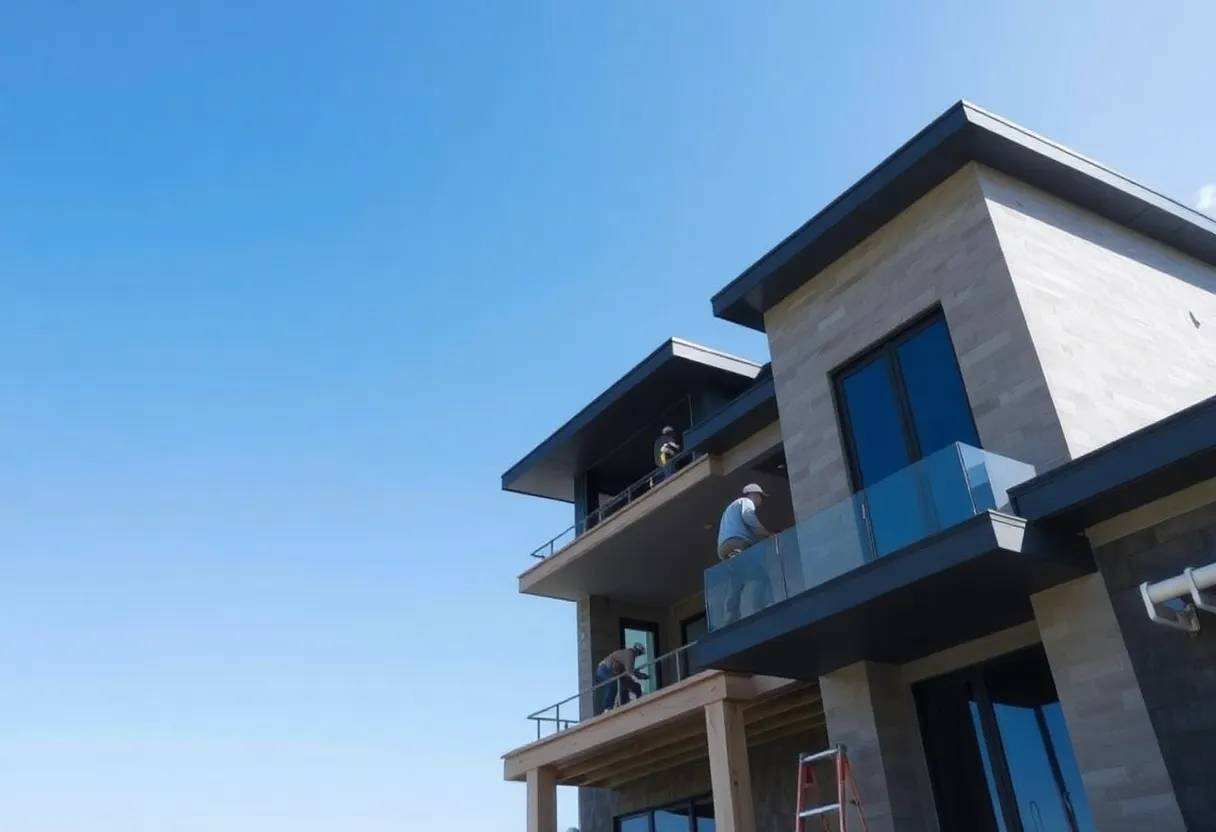What Are the Key Steps for Successfully Planning Your Houston Home Build?
1. Establish a Realistic Budget
Begin with a comprehensive budget that covers all phases of construction. Incorporate costs for land purchase, permits, architectural and design fees, construction materials, labor, and finishing touches. A critical component is setting aside a contingency fund, typically 10% to 15% of the total budget, to address unforeseen expenses. Without this buffer, unexpected issues can jeopardize your entire project. Accurate budgeting not only safeguards against financial surprises but also helps prioritize features and makes informed decisions throughout construction.
2. Select an Appropriate Location
Choosing the ideal site is fundamental to the success of your build. Factors to consider include proximity to work, schools, shopping centers, and healthcare facilities, which directly impact day-to-day living. Conduct thorough research into zoning restrictions, soil stability, and availability of essential utilities such as water, sewer, and electricity. Environmental considerations are crucial—identify flood-prone areas, natural disaster risks, and potential soil contamination. Understanding these details helps avoid costly delays or modifications after construction begins.
3. Assemble a Competent Team
Building a home requires collaboration with skilled professionals. Engage a reputable builder with proven expertise in custom homes. Verify their track record, license, and client reviews. An experienced architect or designer helps translate your vision into workable plans while ensuring compliance with local codes. Clear communication with your team minimizes misunderstandings, reduces delays, and enhances overall quality. The right team is essential to realizing your home’s design, safety, and sustainability goals.
4. Design Your Home
Work closely with your chosen design team to develop detailed, practical plans. Think about long-term living needs, future expansion, and eco-friendly features. Incorporate energy-efficient elements such as high-performance insulation, solar-ready roofing, and smart home technology. Prioritize layouts that maximize natural light, ventilation, and space utilization. A well-thought-out design balances aesthetic appeal with functionality and operational costs, laying the groundwork for a comfortable, sustainable residence.
5. Secure Necessary Permits and Approvals
Compliance with Houston’s building regulations is mandatory before breaking ground. Obtain permits for construction, electrical, plumbing, and mechanical systems. These ensure your project adheres to safety standards and zoning laws. If your property falls within flood zones or protected areas, additional approvals are required. Engaging with local authorities early streamlines the process. If your property is part of an HOA, submit your plans for approval to avoid rework or violations.
6. Plan for Construction
Develop a detailed timeline in collaboration with your builder. Establish key milestones from groundbreaking to move-in. Regular site visits facilitate quality control and allow you to address issues promptly. Weather conditions, supply chain disruptions, and permit delays can impact schedules. Flexibility and a contingency plan are essential. Keep communication lines open with your team to adapt swiftly when challenges arise. Proper planning minimizes delays and keeps your project on track.
7. Organize Documentation
Maintain meticulous records of all project-related documents. These include contracts, permits, design blueprints, inspection results, and change orders. Proper documentation provides clarity, helps resolve disputes, and simplifies future renovation or maintenance efforts. Digitize files for easy access and backup essential documents in secure locations. Organized records ensure transparency and compliance throughout the construction process.
8. Conduct Regular Inspections
Schedule inspections at critical construction phases—foundation, framing, electrical, plumbing, and final finishes. These inspections verify adherence to approved plans and building codes. Address deficiencies immediately to prevent costly corrections later. The final inspection is crucial for securing the Certificate of Occupancy, which certifies the home’s safety and compliance. Consistent oversight safeguards your investment and assures quality workmanship.
9. Finalize Interior Design and Landscaping
Select finishes, fixtures, and materials that reflect your style within your budget. Opt for sustainable and energy-efficient options such as LED lighting, low-flow plumbing fixtures, and eco-friendly flooring. Landscaping enhances curb appeal and adds functional outdoor spaces—consider native plants, drought-resistant species, and features like patios or play areas. Thoughtful design choices and landscaping also reinforce your home’s sustainability and value.
10. Prepare for Move-In
After passing all inspections, coordinate utility connections and obtain necessary warranties for appliances and systems. Conduct a final walk-through to identify any outstanding issues. Ensure all systems—HVAC, electrical, plumbing—are fully operational. Develop a maintenance schedule and familiarize yourself with warranties. Once everything is in place, plan your moving logistics to transition seamlessly into your new home. Celebrate and enjoy the results of careful planning and execution.
Frequently Asked Questions (FAQ)
How long does it take to build a new home in Houston?
The typical construction timeline ranges from 6 to 12 months. Factors influencing duration include design complexity, material availability, permitting process, and weather conditions. Custom projects may extend beyond this timeframe. Close collaboration with your builder enhances schedule predictability.
What are the average costs associated with building a home in Houston?
Construction costs typically range from $150 to $300 per square foot. Variations depend on land location, home size, design intricacy, and material choices. Establishing a clear budget early prevents overspending and guides feature prioritization.
Do I need to hire an architect for my home build in Houston?
While not mandatory, engaging an architect is highly recommended for custom homes. Architects help translate your vision into detailed plans, optimize design efficiency, and ensure compliance with local codes. Their expertise adds value and reduces costly adjustments later.
What permits are required for building a home in Houston?
Essential permits include building, electrical, plumbing, and mechanical system approvals. Additional permits may be needed for floodplain development or environmental considerations. Proper permit acquisition ensures legal compliance and smooth progress.
How can I ensure my new home is energy-efficient?
Implement features such as high-performance insulation, energy-efficient appliances, solar-ready systems, and smart home automation. Using sustainable building materials and designing for optimal natural light and ventilation further enhances energy savings. Certifications like Energy Star validate efficiency measures.
| Feature | Details |
|---|---|
| Budget Planning | Includes land, permits, construction, and contingency funds |
| Location Selection | Proximity to amenities, zoning, environmental risks |
| Professional Team | Builders, architects, designers with proven track records |
| Home Design | Functional layouts, sustainable features, future-proofing |
| Permitting & Regulations | Proper approvals to ensure code compliance |
| Construction Timeline | Typically 6–12 months; influenced by weather & supply chain |
| Inspection & Quality Control | Regular checks during key phases; final Certificate of Occupancy |
| Interior & Landscaping | Efficient finishes, native plants, outdoor living spaces |
| Preparation & Move-In | Utilities, warranties, final walkthroughs |
Author: STAFF HERE HOUSTON TX WRITER
The HOUSTON STAFF WRITER represents the experienced team at HEREHouston.com, your go-to source for actionable local news and information in Houston, Harris County, and beyond. Specializing in "news you can use," we cover essential topics like product reviews for personal and business needs, local business directories, politics, real estate trends, neighborhood insights, and state news affecting the area—with deep expertise drawn from years of dedicated reporting and strong community input, including local press releases and business updates. We deliver top reporting on high-value events such as Houston Livestock Show and Rodeo, Art Car Parade, and Chevron Houston Marathon. Our coverage extends to key organizations like the Greater Houston Partnership and Houston Area Urban League, plus leading businesses in energy and healthcare that power the local economy such as ExxonMobil, Schlumberger, and Houston Methodist. As part of the broader HERE network, including HEREAustinTX.com, HERECollegeStation.com, HEREDallas.com, and HERESanAntonio.com, we provide comprehensive, credible insights into Texas's dynamic landscape.





